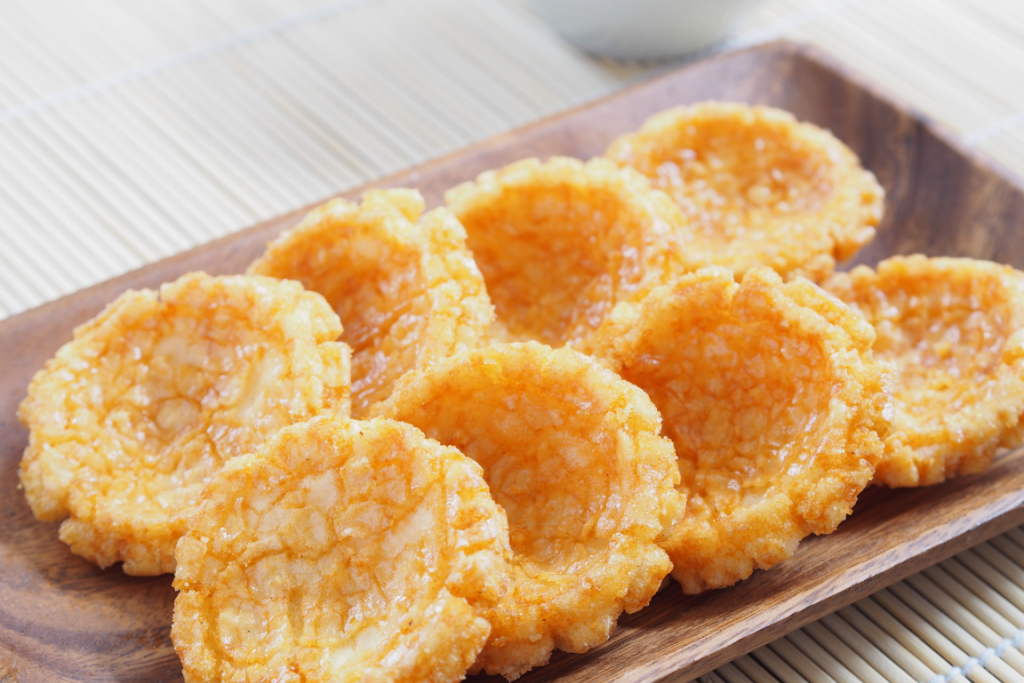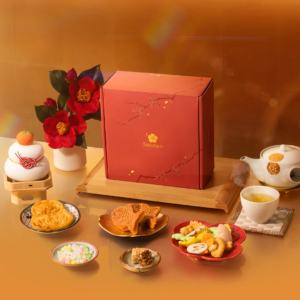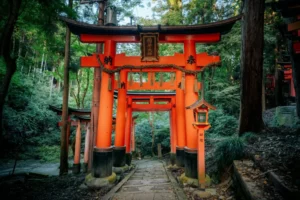Okoge senbei are popular traditional Japanese rice crackers made from charred leftovers from cooked rice. The cracker’s satisfying crunch goes excellent with its mildly sweet and savory flavor. While it was first seen as a “happy accident,” nowadays, you’ll find packaged okoge senbei lining the shelves of supermarkets and specialty stores alike. Keep reading to learn more about this fantastic snack and how to make it in your home!
Table of Contents
ToggleHow did Okoge senbei originate?
Before rice cookers, people in Japan used to cook rice in a kamado, a traditional stove heated by wood or charcoal. While cooking, it was often difficult to adjust the heat of the firewood or charcoal. Because of this, the rice would often stick to the bottom of the pot and become slightly burned.
If the rice becomes charred entirely, it won’t taste perfect. But, if the bottom of the pan is slightly browned and lightly charred, the rice takes on a wonderfully fragrant taste.
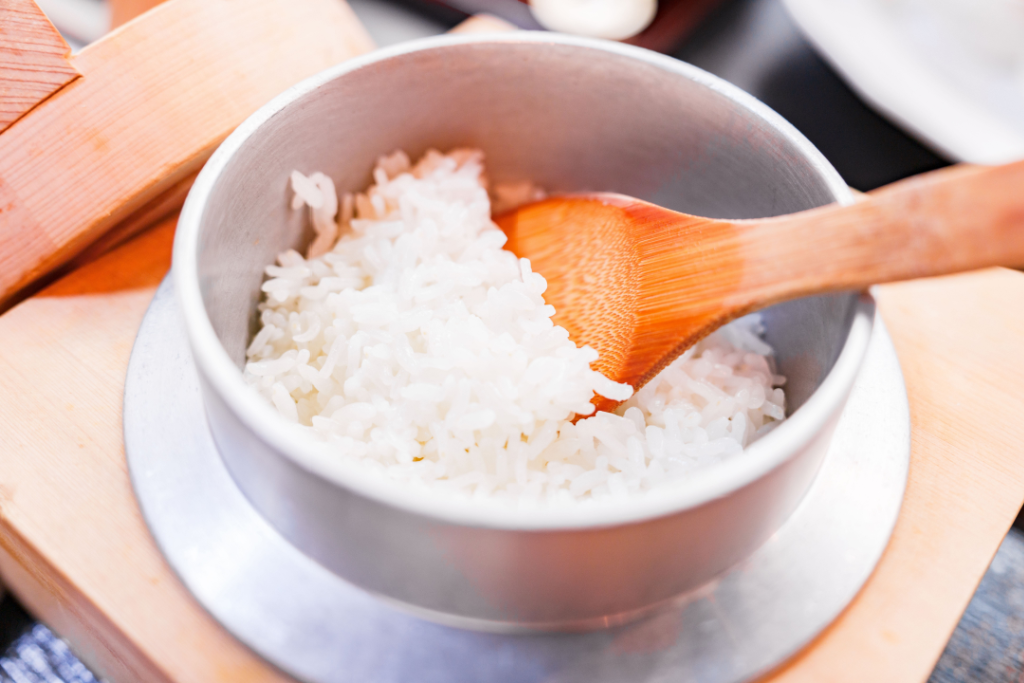
Later, many people began intentionally cooking rice with less water. This meant the bottom of the pot would reach temperatures close to 120 degrees. This golden brown, crunchy bottom has a unique umami flavor similar to soy sauce and seaweed. Thus, it was called okoge, meaning scorched rice.
This layer was often eaten with vegetables or rehydrated with water, soup, or tea. Further, you can’t have a proper traditional Japanese tea ceremony without including okoge as a vital ingredient. For example, people serve it with hot water or broth and pickles as a final course.
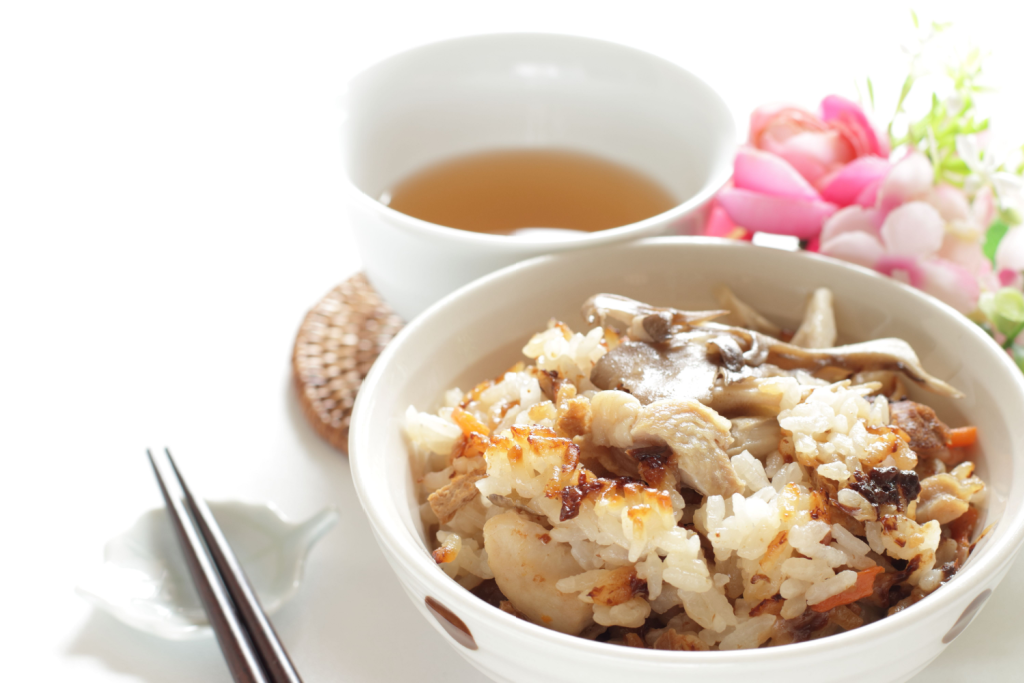
Modern rice cookers control cooking temperatures. Because of this, many people struggle to make okoge during a regular cooking process. Japanese rice cooker manufacturers understand the demand for okoge. So, many rice cookers in Japan have an okoge setting for people to enjoy.
From then on, people started making okoge senbei snacks to imitate the taste of okoge on the go. Some Japanese rice cracker companies have been creative with the names of Okoge senbei, like the makers at Fujiya, who call their senbei “Okogemeshi.”
Where can I try Japanese rice crackers?
Okoge senbei is a staple in many traditional senbei shops across Japan. These shops are places where skilled artisans expertly craft these snacks. Here are a few of our favorites!
Ningyocho Soukaya (Tokyo)
Ningyocho is a quaint neighborhood nestled in the middle of Tokyo. Originally home to theaters and puppeteers, many traditional buildings still stand in this relic of Japan’s Edo Period.
The Ningyocho Soukaya shop proudly stands in Ningyocho as a representation of such a past. The artisans there have been crafting handmade baked Japanese rice crackers since 1927. Since its founding, the shop has been using traditional methods baking methods with charcoal.
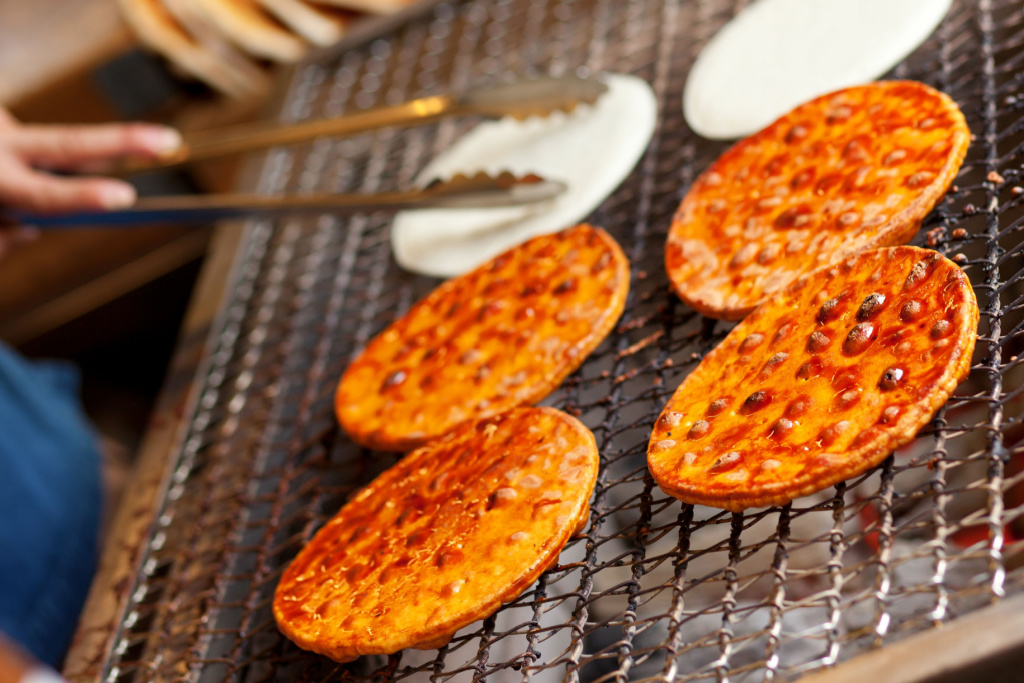
Ogura Sansou (Kyoto)
Next, we have a shop only 15 minutes from Kyoto’s renowned Fushimi Inari Taisha. Ogura Sansou serves senbei there. The shop’s name comes from the legendary Japanese poetic anthology Ogura Hyakunin Isshu. Every product at Ogura Sansou carries the spirit of “conveying emotions.” In essence, reflecting the poetic anthology.
What Can I Drink with Okoge Senbei?
Green Tea
People in Japan have celebrated senbei and green tea together for ages, and it’s no wonder why! Combining the crispy, savory senbei and the soothing, refreshing green tea is delightful. The pair creates a sensory experience that tickles the taste buds and warms the soul.
This pairing extends deep cultural roots in Japan, far beyond the culinary realm. Dharing senbei and green tea has been a long-standing tradition. In essence, it symbolizes hospitality and camaraderie. It’s a gesture of welcoming guests into one’s home. Further, it’s a way of showing appreciation to friends and family. When people get together for fun, you’ll often find them snacking on senbei and sipping green tea.
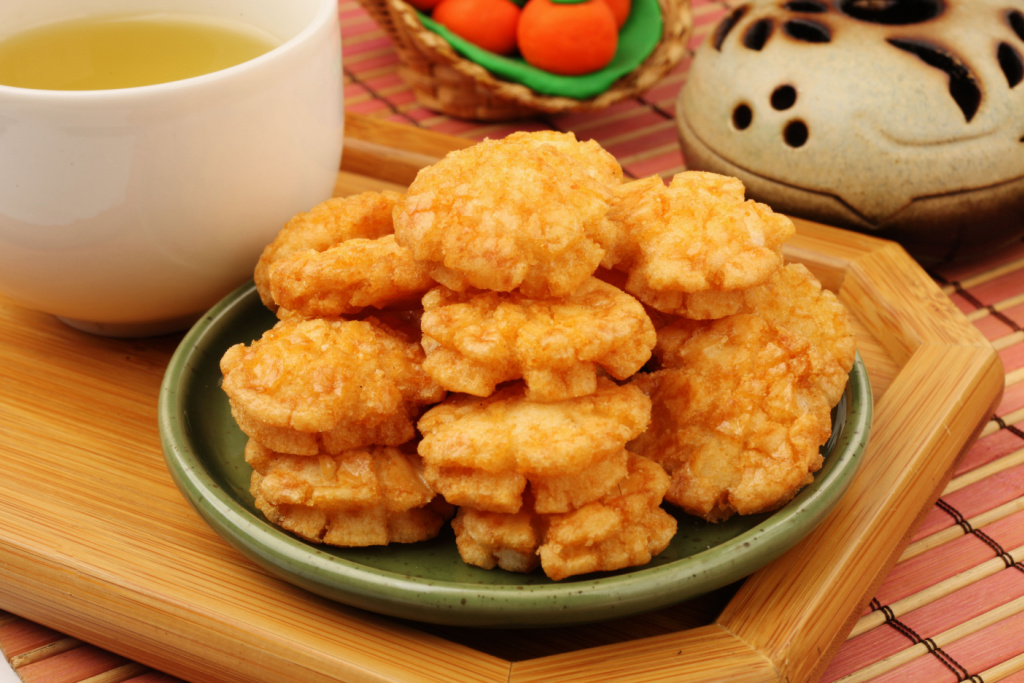
Beer
Japanese snack enthusiasts love the excellent pairing of beer and okoge senbei. Combining these two treats creates a beautiful contrast of flavors and textures. In turn, this creates an elevated overall snacking experience.
The umami flavors in senbei can enhance the beer-drinking experience, making the beverage even more enjoyable. In summary, the mix of salty senbei with beer’s malty flavors creates a great combination.
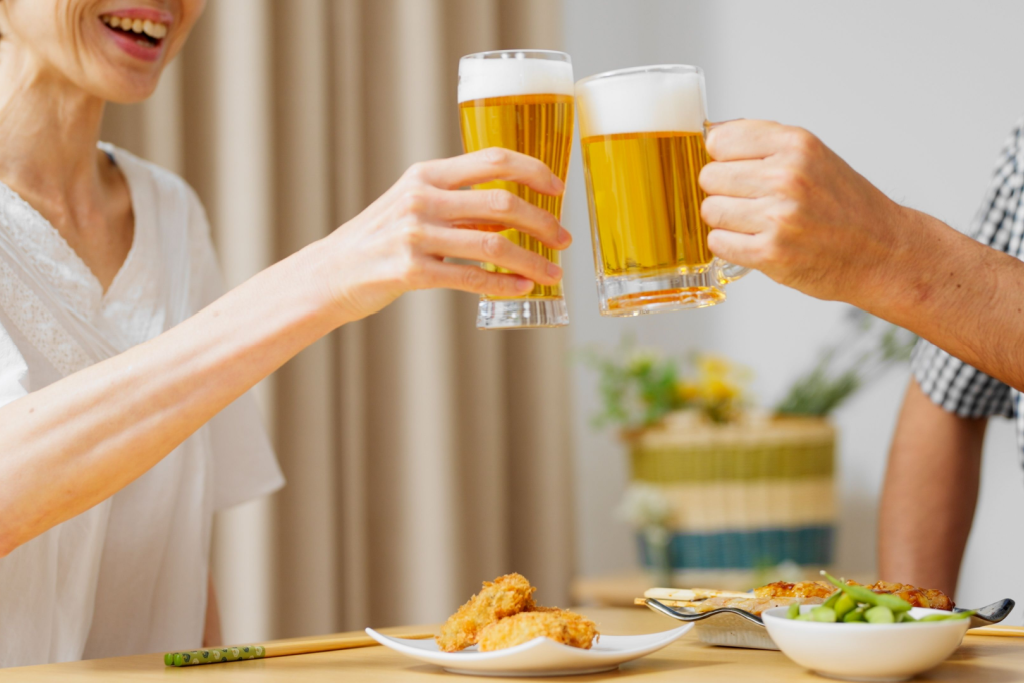
Looking to experience Okoge senbei and other snacks? Check out Sakuraco! Sakuraco delivers traditional Japanese snacks, teas, sweets, and snacks from local Japanese makers directly to your door so you can enjoy the latest treats directly from Japan!
How Can I Make These Japanese Rice Crackers?
Would you like to make these wonderfully crunchy senbei crackers? Even though okoge senbei can be bought in a store, a great alternative to buying okoge senbei is making them at home. Here’s a fun and easy recipe. It’s also an excellent activity for the whole family!
Ingredients:
- A moderate amount of cooked rice
- A moderate amount of frying oil
- 1:1 soy sauce & sugar mixture (for glaze)
Materials:
- Parchment paper or plastic wrap
- Microwave
- Frying Pan
How to Prepare for Making Okoge Senbei:
- The rice you use can be fresh, frozen, or refrigerated. If frozen or refrigerated, warm the rice in the microwave until it’s soft enough to mold.
Steps for Making Okoge Senbei:
- Place small rounds of rice about four inches in diameter onto parchment paper.
- Cover the rice with another piece of parchment paper, and spread the rice flat with a rolling pin.
- Take off the top parchment paper. Put the rice and the bottom parchment paper on a microwave-safe plate.
- Microwave the flattened rice for five minutes or until crispy and dry.
- Break the crispy rice into appropriate pieces and fry in 375°F oil.
- Remove when no more bubbles appear.
- Brush the senbei immediately with your glaze (It should make a delightful crackling sound)
Steps for Making Japanese Rice Cracker Glaze:
- Depending on your rice serving size, the amount of sauce needed varies.
- You will need one tablespoon of sugar and soy sauce for one serving of rice.
- Mix the 1:1 sugar and soy sauce ratio in a bowl until evenly combined.
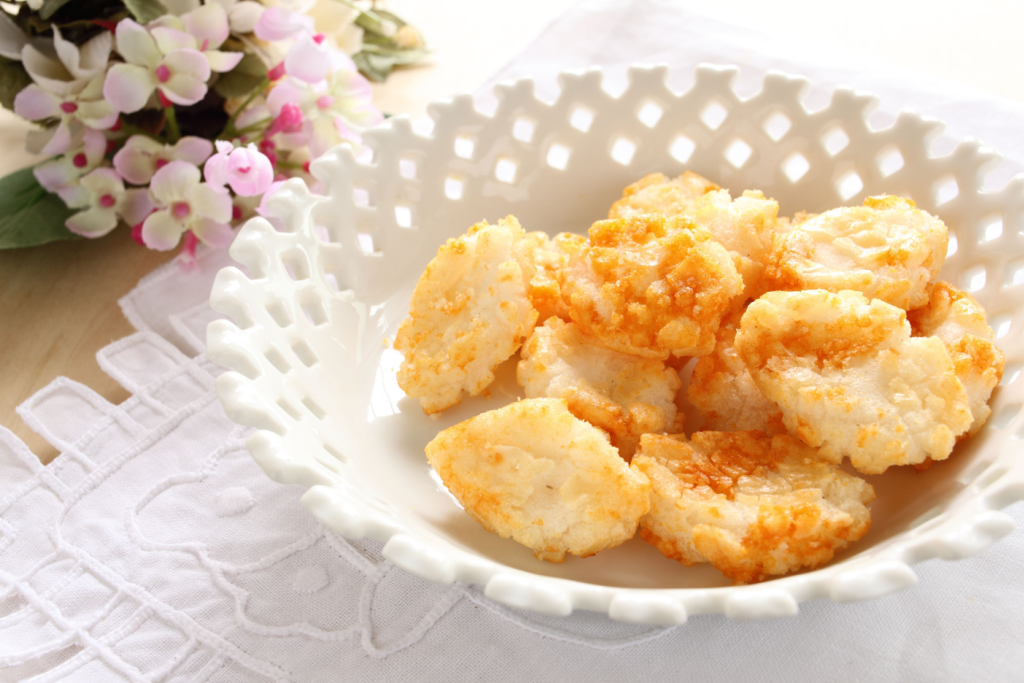
This deep-fried treat is great as an on-the-go treat or to enjoy with green tea. Have you tried okoge senbei before? Do you want to make them at home? Let us know in the comments below!


